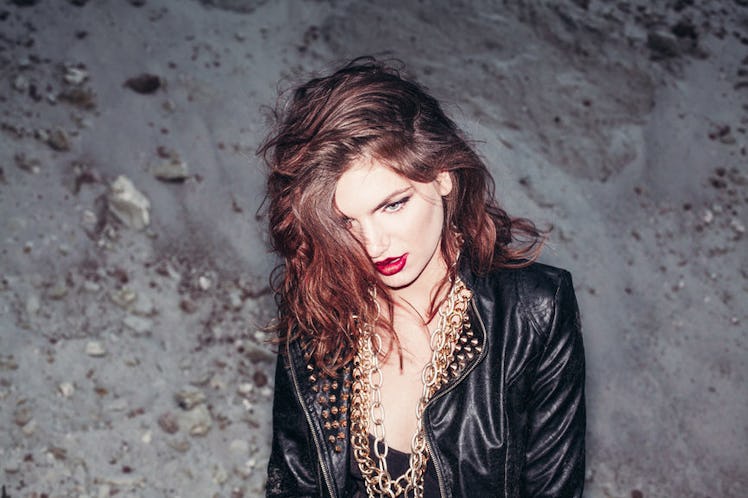
How Awkward Has Become The New Standard For This Generation
That awkward moment when...
Uncomfortable family photos go viral, mustaches and glasses the size of your face are trendy and ironic, and being an introvert gives you more to talk about than being an extrovert.
Since when did being awkward become a full-time job?
Awkward is the new standard
Awkward is the new standard of social prowess and replaced what used to be a mentality of calm, cool and collected.
For generations, the combination of conformity and confidence has been the leading equation for success in our society. However, it appears that the return to our own quirky humanity has paved the way for the geeks and freaks to take center stage as the leaders of the Millennial hoard.
Admitting to your love of cake or your forever-alone status on social media has replaced the self-conscious urge to defend your "accidental" binge of two slices of pizza or your reason for showing up to a party without a date.
As a result, we've not only built a bridge of understanding that is reflected in the strings of funny Tumblr comments that flood our news feeds every day, but also in the way we fearlessly go without makeup and maneuver uncomfortable social situations with a greater awareness of our own social missteps.
We read what we want to read, watch what we want to watch and say what we want to say, when we want to say it.
The girl or guy who once poked fun at someone for tripping in class or listening to an underground band instead of the latest Miley Cyrus track has become the one we frown upon as fake and undesirable.
Still, only a pop-culture minute ago, that person controlled whether or not we could sit at the lunch table.
A new era of acceptance
Embracing this newly glorified message of individuality not only encourages us to seek acceptance from within ourselves, but also to seek that acceptance from others on a grand scale.
Whether we feel validated by a close friend admitting her embarrassment after calling someone by the wrong name or by a celebrity proclaiming his distaste for working out or her love for french fries, things we used to consider shameful signs of weakness are being placed on pedestals of shared humanity as common acts of awkwardness.
By shamelessly recognizing our imperfections as realities, we are creating a culture that values personal expression at any cost; the quirkier the better.
We no longer hide our completely delusional and borderline stalker-esque love for the barista who fills our Starbucks order every Monday and Thursday morning behind a facade of socially acceptable indifference.
Instead, we now see it fit to create an e-card declaring feelings that could warrant incarceration if expressed at any other time than during the era of awkward acceptance in which we live. This encouragement of unabashed expression does more than give a voice to those who were previously silenced by socialization.
It has also laid the foundation to use this freedom of expression and acceptance in a future where opinions — no matter how outlandish — and identities — no matter how bizarre — will pave the way for future generations of awkward, yet totally normal people.
Daring to be basic
Is the acceptance of awkward as our generation's identity keeping us from falling into a rut of complacency? Or, have we simply found a new social norm by which to passively designate a person as cool or uncool — or in this case, ironic or basic?
If you didn't Instagram a photo of your new Deathly Hallows tattoo, did it really happen? When you aren't taking the time to constantly reaffirm your level of dork-dom, whether by posting on social media or physically branding yourself, your identity as a unique and interesting individual is at risk of being basic — our generation's idea of social irrelevance.
For those of us who genuinely like chick flicks and painting our nails or who just don't find bow ties flattering, the push to unleash our inner awkward begs the question, "Why isn't my own identity good enough anymore?"
Sure, we love eating french fries, too, but maybe we also enjoy going for a jog every so often. Or maybe, we've somehow gained enough control over our bodies to not fall all over ourselves every time we see a staircase (I'm looking at you, Jennifer Lawrence).
If we have found ways to identify with ourselves and with others by means of being the only selves we know how to be, are we not entitled to the same level of acceptance and expression?
By setting a standard of any kind, whether you identify as mainstream or awkward, our generation is giving itself an excuse for conformity.
While you may believe that tweeting your favorite lyric from an obscure song is a form of unique expression, you are limiting yourself to a narrow definition of “expression” that is characterized by the desire to be different in a world where difference is the norm.
Humans are awkward. But instead of seeing every moment as an “awkward” moment, maybe we need to recognize that truly awkward moment: when it becomes apparent that being awkward isn't really awkward at all. It's quite mainstream, really.
Photo via HBO